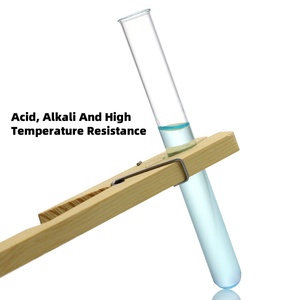Introduction to Glass Plates Laboratory
Glass plates laboratory are essential tools widely used across various scientific disciplines, including chemistry, biology, and materials science. Renowned for their durability, heat resistance, and chemical inertness, these plates serve multiple functions such as providing a stable workspace and facilitating various experiments. The clarity of glass plates allows for visual observation of chemical reactions and biological processes, making them invaluable in research and educational settings.
Types of Glass Plates Laboratory
- Plain Glass Plates: These are the most basic type, featuring smooth surfaces ideal for general applications such as microscopy. They provide a flat surface for sample preparation.
- Frosted Glass Plates: With a sandblasted or etched surface, frosted plates minimize light reflection, making them suitable for tasks requiring reduced glare, such as microscopy.
- Chemical Resistant Glass Plates: Specially designed to endure harsh chemicals, these plates are essential in laboratories performing extensive chemical testing and reactions.
- Cover Glasses: Thin and flat, these glasses are used in conjunction with slides to cover samples for microscopic examination, ensuring they remain uncontaminated.
Applications of Glass Plates Laboratory
- Microscopy: Glass plates serve as microscope slides, holding specimens for examination and allowing scientists to observe finer details with clarity.
- Culturing Cells: In microbiology and cell biology, glass plates are frequently employed for the growth and observation of cell cultures.
- Chemical Reactions: Scientists utilize glass plates to conduct small scale chemical experiments, where precise observation and measurement are paramount.
- Thin Layer Chromatography: Glass plates are used in various forms of chromatography, enabling the separation of compounds for analysis and testing.
Features and Advantages of Glass Plates Laboratory
- High Clarity: The transparent nature of glass plates allows for optimal visualization of samples, making them perfect for detailed observational studies.
- Heat Resistance: Laboratories often engage in high-temperature processes; glass plates can withstand significant heat without deforming or melting.
- Chemical Compatibility: Glass is inherently resistant to most chemicals, ensuring that reactions can be conducted safely without risk of contamination.
- Reusable and Durable: Unlike plastic options, glass plates can be easily cleaned and reused, offering a cost-effective solution for laboratories.






















































